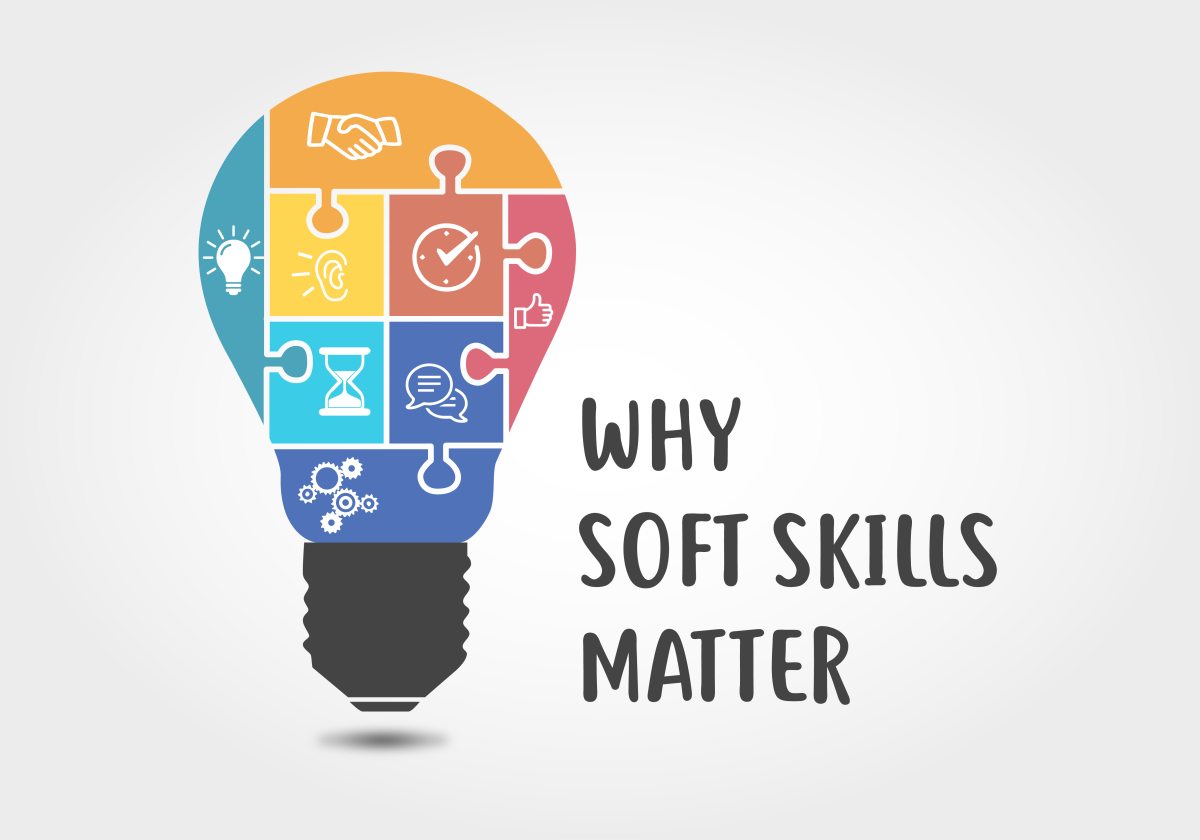
Why Soft Skills are More Important than Ever
19/06/2020
Reading and hearing regularly about the notion of ‘soft skills’, you could wonder what are these famous skills that teams of tomorrow must have - it’s safe to say - today? Rest assured, you are not the only one asking this question, so we thought it’d be a grand idea to explore in-depth the subject most probably need for career success.
A new way of working in the digital age
We are going through a period of immense upheaval and shock. Our society turned upside down by new technologies, forcing us to reinvent ourselves and to call upon skills different from those our grandparents and parents used.
In the digital age, the era of big heads is over. The tools of our time no longer require learning by heart since information is always at hand, or rather at the keyboard. Knowledge is accessible everywhere and immediately. Today we just look for the information we need by doing Google searches and - here you go - you’ve got your answer. Want to learn, let’s say, PowerPoint? YouTube delivers immediately all the tutorials you need - and you even have someone showing how to do it ‘live’ on streaming platforms. So cool!
Leadership, work, knowledge, job interviews, and training… everything changes. Our brain does too. So-called ‘technical’ skills are gradually giving way to human skills. We float away from the ‘paternalistic’ company model with its top-down information structure to the modern world of information where the info is everywhere, and it is the meaning that is sought after. And the key question today is not ‘what’ but ‘why’ do we have to do this or that in our company?
So-called soft skills gradually take priority over purely technical skills.
Relationship and social-emotional skills
Having technical knowledge is one thing, but having the interpersonal and social-emotional skills is another. What's the point of being the most experienced of all on a subject if relational skills don't follow up and nobody likes working with you?
Imagine you have a great pessimist in front of you, competent, certainly, but for whom nothing ever goes right no matter what happens? Who always sees the glass half empty even if it is 3/4 full?
Beyond the know-how, it is the social skills that are taking more and more of the step and will be more and more sought after by companies and therefore by recruiters. Moreover, what makes a person progress in the company? Technical skills or relationship and social-emotional skills? You cannot achieve one without the other.
Alongside the technical skills known as hard skills (knowing how to use the software, holding a diploma or a certification attesting to technical skills), human and relational qualities, soft skills are increasingly valued.
To define them, the simplest way is to do so as opposed to hard skills.
Hard skills are formally demonstrable competences, born of technical apprenticeship, often of an academic nature and which are proven by obtaining marks, diplomas, and certificates. In contrast to these hard skills, which are tangible, soft skills are more diffuse and informal, hence their qualification as ‘soft’.
These are the skills we do not learn at school but use every day.
Skills of emotional intelligence
Soft skills are a quality often associated with the field of emotional intelligence. For example, the way you enter a relationship, cultivate that relationship and communicate with others, being appreciated for your human qualities, being intuitive, warm, and optimistic and seeing the glass half full, etc.
These are personal characteristics that allow you to interact effectively and harmoniously with other people, these are skills that are more a matter of personality, and which depend (if you want to draw a parallel) more on the right brain than on the left brain (the left brain is more analytical and the right one is more intuitive). Soft skills are the skills we mobilize the most in our organizations since employees spend more and more time creating harmony and efficiency within our teams.
Competencies that promote agility in the enterprise
Over 70% of employers believe that the soft skills associated with your personality (assertiveness, congruence, empathy, resilience, or serendipity) are as important as your hard skills (those you have learned to produce specific, measurable work such as bookkeeping or word skills).
Why is this? Because they make it easier to work together.
And what exactly are they?
Depending on the articles, magazines, studies, the list of essential soft skills differs.
In a study conducted in 15 countries, World economic forum identified the soft skills that employees consider indispensable to have in 2020;
• Complex problem solving
• Critical Thinking
• Creativity
• Team management
• Coordination
• Emotional Intelligence
• Judgement and decision-making
• Customer Service Concern
• Negotiation
• Cognitive flexibility
Generally speaking, the most sought-after soft skills are those that will allow you to connect with teams and interact with others effectively.
What companies are now looking for doing a job search are employees with skills such as empathy, listening, pedagogy, adaptability, creativity, stress management... these skills emphasizing teamwork, listening and communication or organization, and which will strengthen not only the company's culture but also its agile organization. Because the pace is faster and faster, all the skills that enable coordination, give meaning and create links are sought after.
And how do we evaluate them?
This is where recruiting will require more and more finesse and relevance to qualify the know-how. Recruitment based solely on diplomas and education assumes only technical know-how, which is inseparable from soft skills. While recruitment agencies already use situational analysis and assessment techniques, these techniques are becoming more widespread in companies. Furthermore, digital technology is encouraging the implementation of recruitment through virtual simulations, particularly through serious games.
